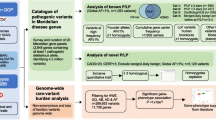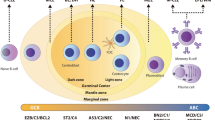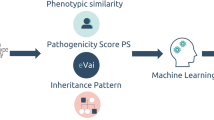Abstract
Clinicians referring patients for genetic testing for Lynch syndrome will sooner or later receive results for DNA Mismatch Repair (MMR) genes reporting DNA changes that are unclear from a clinical point of view. These changes are referred to as variants of unknown, or unclear, clinical significance (VUS). In contrast to clearly pathogenic mutations, VUS do not firmly diagnose Lynch syndrome at the molecular level and cannot be used to identify with certainty any of the patients’ asymptomatic relatives as Lynch syndrome mutation carriers. The International database that collects MMR gene variants (www.insight-group.org/mutations) already lists more than 1,000 different VUSs and these variants are likely the tip of the iceberg. This paper aims at introducing non-geneticist clinicians to the topic of clinical MMR gene variant interpretation. Many lines of evidence are being used to classify VUS. Some are already familiar to clinicians and others may be less familiar but are expected to become important in clinical genetics in the coming years. Clinicians can play an important role in collecting the data needed to interpret the MMR variants detected in their patients.

Similar content being viewed by others
References
Boland CR, Goel A (2010) Microsatellite instability in colorectal cancer. Gastroenterology 138(6):2073.e3–2073.e2087
Hampel H, Frankel WL, Martin E et al (2005) Screening for the Lynch syndrome (hereditary nonpolyposis colorectal cancer). N Engl J Med 352(18):1851–1860
Pino MS, Chung DC (2010) Application of molecular diagnostics for the detection of Lynch syndrome. Expert Rev Mol Diagn 10(5):651–665 Review
Goldgar DE, Easton DF, Byrnes GB, Spurdle AB, Iversen ES, Greenblatt MS, IARC Unclassified Genetic Variants Working Group (2008) Genetic evidence and integration of various data sources for classifying uncertain variants into a single model. Hum Mutat 29(11):1265–1272
Heinen CD, Juel Rasmussen L (2012) Determining the functional significance of mismatch repair gene missense variants using biochemical and cellular assays. Hered Cancer Clin Pract 10(1):9
Rasmussen LJ, Heinen CD, Royer-Pokora B, Drost M, Tavtigian S, Hofstra RM, de Wind N (2012) Pathological assessment of mismatch repair gene variants in Lynch syndrome: Past, present, and future. Hum Mutat. Jul 25 doi: 10.1002/humu.22168
Parsons MT, Buchanan DD, Thompson B, Young JP, Spurdle AB (2012) Correlation of tumour BRAF mutations and MLH1 methylation with germline mismatch repair (MMR) gene mutation status: a literature review assessing utility of tumour features for MMR variant classification. J Med Genet 49(3):151–157
Niessen RC, Berends MJ, Wu Y, Sijmons RH et al (2006) Identification of mismatch repair gene mutations in young patients with colorectal cancer and in patients with multiple tumours associated with hereditary non-polyposis colorectal cancer. Gut 55(12):1781–1788
Gylling AH, Nieminen TT, Abdel-Rahman WM, Nuorva K, Juhola M, Joensuu EI, Järvinen HJ, Mecklin JP, Aarnio M, Peltomäki PT (2008) Differential cancer predisposition in Lynch syndrome: insights from molecular analysis of brain and urinary tract tumors. Carcinogenesis 29(7):1351–1359
Tuupanen S, Karhu A, Järvinen H, Mecklin JP, Launonen V, Aaltonen LA (2007) No evidence for dual role of loss of heterozygosity in hereditary non-polyposis colorectal cancer. Oncogene 26(17):2513–2517
Grantham R (1974) Amino acid difference formula to help explain protein evolution. Science 185(4154):862–864
Thompson BA, Greenblatt MS, Vallee MP et al (2012). Calibration of multiple in silico tools for predicting pathogenicity of mismatch repair gene missense substitutions. Hum Mutat Sep 4. doi: 10.1002/humu.22214
Wimmer K, Etzler J (2008) Constitutional mismatch repair-deficiency syndrome: have we so far seen only the tip of an iceberg? Hum Genet 124(2):105–122
Easton DF, Deffenbaugh AM, Pruss D, Frye C, Wenstrup RJ, Allen-Brady K, Tavtigian SV, Monteiro AN, Iversen ES, Couch FJ, Goldgar DE (2007) A systematic genetic assessment of 1,433 sequence variants of unknown clinical significance in the BRCA1 and BRCA2 breast cancer-predisposition genes. Am J Hum Genet 81(5):873–883
Senter L, Clendenning M, Sotamaa K, Hampel H et al (2008) The clinical phenotype of Lynch syndrome due to germ-line PMS2 mutations. Gastroenterology 135(2):419–428
Bonadona V, Bonaïti B, Olschwang S et al (2011) Cancer risks associated with germline mutations in MLH1, MSH2, and MSH6 genes in Lynch syndrome. JAMA 305(22):2304–2310
Ou J, Niessen RC, Lützen A, Sijmons RH, Kleibeuker JH, de Wind N, Rasmussen LJ, Hofstra RM (2007) Functional analysis helps to clarify the clinical importance of unclassified variants in DNA mismatch repair genes. Hum Mutat 28(11):1047–1054
Couch FJ, Rasmussen LJ, Hofstra R, Monteiro AN, Greenblatt MS, de Wind N, IARC Unclassified Genetic Variants Working Group (2008) Assessment of functional effects of unclassified genetic variants. Hum Mutat 29(11):1314–1326
Thompson BA, Goldgar DE, Paterson C, Clendenning M et al (2012). A multifactorial likelihood model for MMR gene variant classification incorporating probabilities based on sequence bioinformatics and tumor characteristics: A report from the colon cancer family registry. Hum Mutat Sep 4. doi: 10.1002/humu.22213
Lindor NM, Guidugli L, Wang X, Vallée MP, Monteiro AN, Tavtigian S, Goldgar DE, Couch FJ (2012) A review of a multifactorial probability-based model for classification of BRCA1 and BRCA2 variants of uncertain significance (VUS). Hum Mutat 33(1):8–21
Plon SE, Eccles DM, Easton D, Foulkes WD, Genuardi M, Greenblatt MS, Hogervorst FB, Hoogerbrugge N, Spurdle AB, Tavtigian SV, IARC Unclassified Genetic Variants Working Group (2008) Sequence variant classification and reporting: recommendations for improving the interpretation of cancer susceptibility genetic test results. Hum Mutat 29(11):1282–1291
Author information
Authors and Affiliations
Corresponding author
Rights and permissions
About this article
Cite this article
Sijmons, R.H., Greenblatt, M.S. & Genuardi, M. Gene variants of unknown clinical significance in Lynch syndrome. An introduction for clinicians. Familial Cancer 12, 181–187 (2013). https://doi.org/10.1007/s10689-013-9629-8
Published:
Issue Date:
DOI: https://doi.org/10.1007/s10689-013-9629-8




